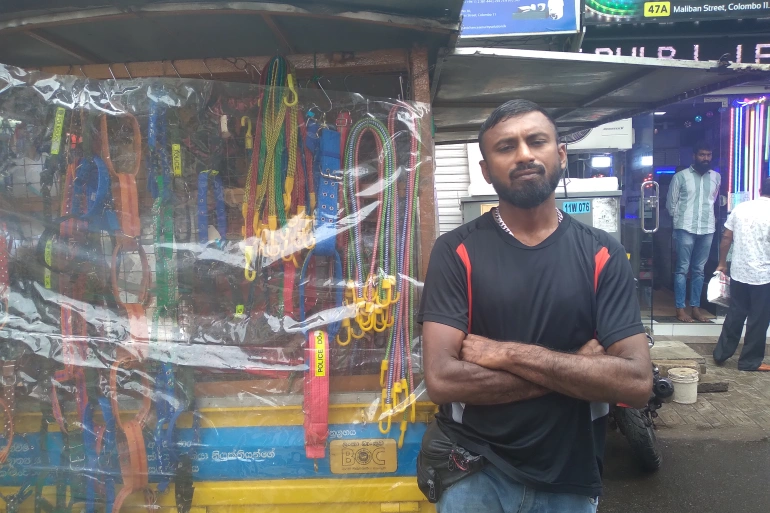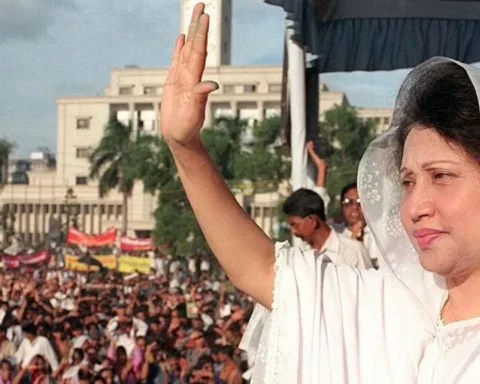Amid soaring costs and 80% food inflation, a trader in Colombo is forced to eat less, ration medicine and buy fuel on the black market to get by.
This story is part of a series of portraits exploring how the cost-of-living crisis is affecting people around the world.
Colombo, Sri Lanka – Mohamed Rajabdeen’s four-wheel yellow mini-truck, known locally as a tempo, is parked at a street corner in Colombo’s Pettah market, one of the city’s busiest and most bustling shopping districts. The back of his vehicle opens on all three sides, doubling up as a vending stall, from which he sells a mix of first- and second-hand goods.
He points to a large grey toolbox sitting amid spanners, wires and car jacks. “You see this?” he asks. “Earlier, it was LKR5,000 or LKR6,000 ($14 or $17). Now? It’s LKR10,000 ($28). I got this months ago and it’s still unsold.” Previously he could sell up to three per week.
Sri Lanka has been reeling under a severe economic crisis since March. Petrol and diesel supplies are limited, and kilometre-long fuel queues have become common in the capital. Inflation has hit consumer goods and food items alike. Experts blame a variety of factors: ballooning debt, a drop in tourism and foreign remittances, and political mismanagement.
“Our country’s situation is very bad,” says Rajabdeen. “No measures are being taken to control inflation.” Like millions of others in the island nation, the 35-year-old’s life and business have taken a hit. “How to manage?” he asks with a disconsolate shrug, dressed in jeans and a black t-shirt with a pouch containing cash slung across his waist. There are no easy answers.
Since he was a child, Rajabdeen has worked on and off with his father, who he calls the “boss”. The older man, aged 62, sits nearby in a shirt-and-sarong looking over the table in front that is also heaped with goods, including plugs, locks, screwdrivers and pliers.
The market is relatively busy, though nothing compared with what it was before the crisis. Still, the rains have mostly held off, and people are bustling around, shopping for electronics, fruits, clothes and other bric-a-brac. The duo come here almost daily to hawk their wares. But sales have been on the lower side for the past several months.
“Customers don’t have money, they are buying less,” says Rajabdeen, who finished school but never went to university. As the oldest son of the family, he had to enter the workforce quickly to help support the others.






